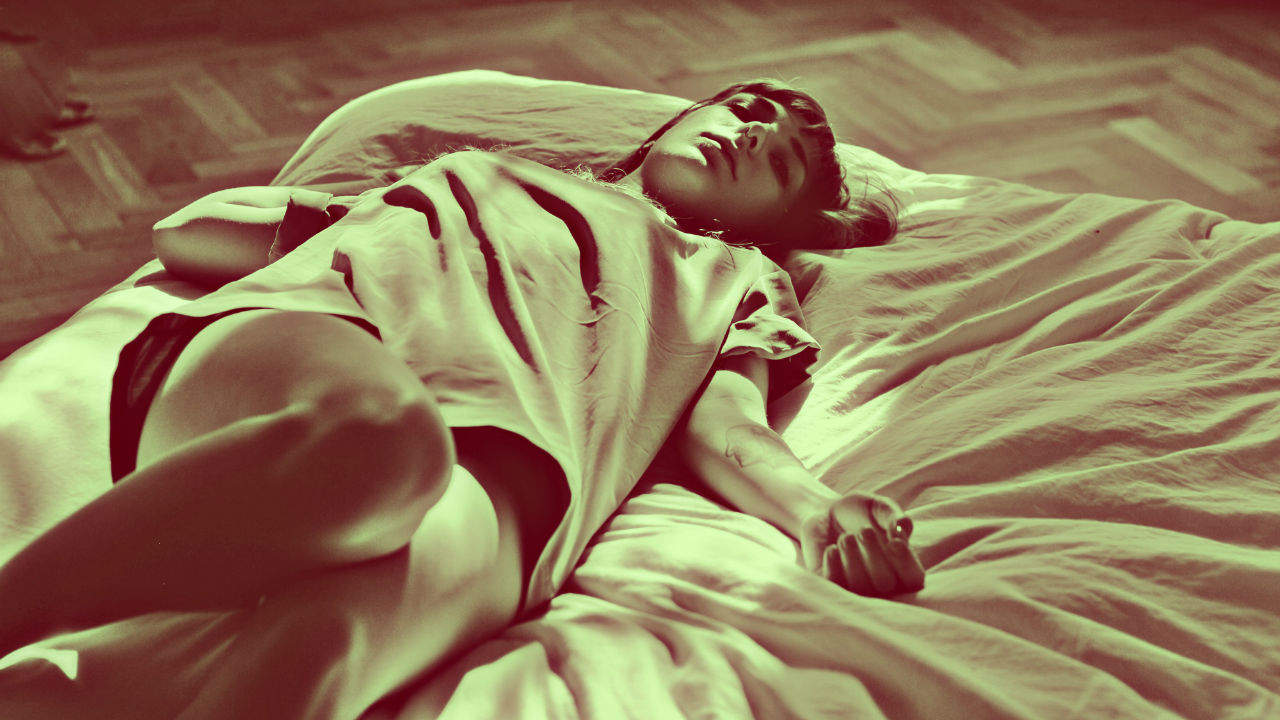Sleep paralysis and night terrors are two tightly interlinked sleep phenomena which can interfere with the health and consistency of your sleep patterns, and introduce more stress into your life, which can make matters even more complicated—especially if you’re already struggling with insomnia.
Sleep paralysis is a complicated condition where your mind is consciously awake, but you’re unable to speak or move your limbs. Sleep paralysis sufferers often report feeling a sensation of pressure, choking, or even hallucinations, and unfortunately, there’s no easy way to stop it—though there are some solutions and strategies to make it happen less often or less intensely.
So why do sleep paralysis and night terrors happen, and what should you do if you experience them?
Why It Happens
What’s actually happening here? Sleep disorders are complicated, so there’s no singular explanation, but the general consensus is that during the period of sleep paralysis, the frontal lobe of your brain (associated with conscious activity) activates during the REM phase of sleep (associated with paralysis and dream experiences). The combination of these two parts of the brain, working in unison, leads to conscious experiences unfolding alongside a dreamlike state (or a paralyzed one). For reasons not currently known, sleep paralysis is more common in women—which means you’re at higher risk than your male counterparts.
What to Do About It
So what can women do to lessen the frequency of sleep paralysis, and mitigate its intensity?
1. Cognitive therapy. One of the best treatment methods for recurring sleep paralysis is cognitive behavioral therapy, which can help you identify some of the underlying mental and emotional causes of the disorder. You may be able to figure out a persistent fear, memory, or anxiety that’s plaguing you, isolate it, and deal with it in a way that allows you to sleep better in the future—without the interruptions and hallucinations.
2. Stress management. High levels of stress are shown to be associated with episodes of night terrors and sleep paralysis. Learning to manage your stress more effectively, through breaks, vacations, time to relax, and hobbies you enjoy, can significantly reduce your risk of suffering an episode. Learning to cope with your sleep disorder is also important, as the stress of potentially experiencing another episode can coincidentally lead to experiencing another episode.
3. Nutrition. Eating junk food or too much food can lead to an increased risk of an episode, so do your best to eat healthy foods like vegetables, fruits, lean proteins, and whole grains. Try not to overeat before bedtime.
4. Exercise. Physical exercise can help you in a number of ways. The extra physical exertion during the day can tire you out so you sleep better and more deeply during the night. You can manage your stress, so you have less anxiety about sleeping. Plus, you’ll stay in better shape, which can improve your overall sense of well-being and leave you less vulnerable to sleep complications.
5. Alcohol and caffeine control. Alcohol and caffeine, in large doses or close to the time you go to bed, can independently exacerbate your sleep paralysis or night terror symptoms. Try to avoid these substances completely if you can, or at least limit them to small amounts as early in the day as possible.
6. Sleep scheduling. Sleep is the stage for both sleep paralysis and night terrors. If you find a way to have a healthier sleep schedule, and a better relationship with sleep overall, you should see reduced symptoms in both areas. Make sure you allocate at least 7 to 9 hours of sleep for yourself every night, invest in a good bed, and eliminate distractions at bedtime (and shortly before it).
Sleep paralysis and night terrors can be horrifying, stressful experiences, and while they can’t be fully cured or eliminated, they can be brought under control. Invest in yourself by improving your sleep schedule, attending therapy, and making lifestyle adjustments to reduce your likelihood of experiencing an episode—and relieving the stress of an episode if it occurs.
All user-generated information on this site is the opinion of its author only and is not a substitute for medical advice or treatment for any medical conditions. Members and guests are responsible for their own posts and the potential consequences of those posts detailed in our Terms of Service.




Add a Comment1 Comments
Hello, mariialv!
Thank you for sharing this helpful information with us.
Helena
November 4, 2017 - 4:48amThis Comment